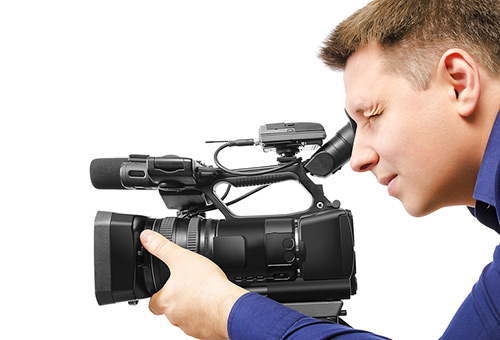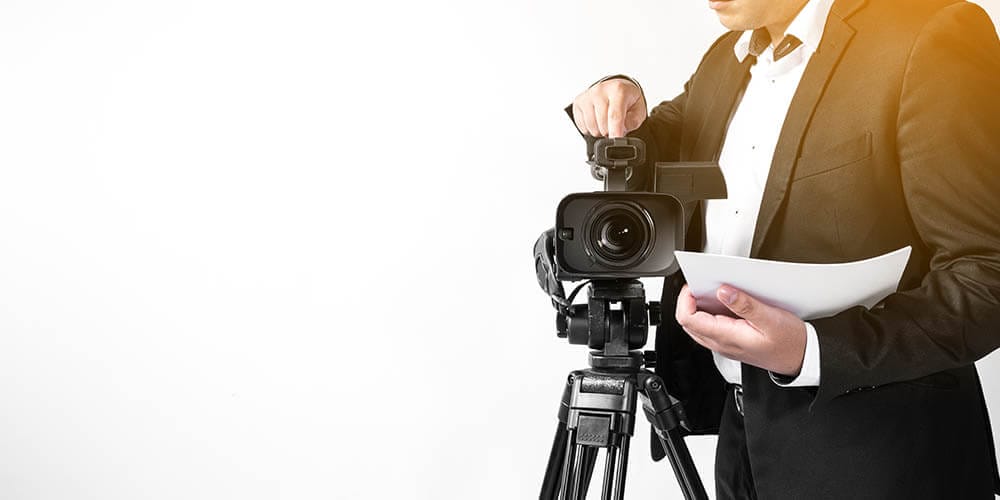The Duty of Lawful Videography in Depositions and Trials
Lawful videography has actually arised as a necessary device in both depositions and trials, providing a complex strategy to recording witness statements. As lawful professionals significantly identify its value, it prompts a much deeper evaluation of exactly how these visual records can affect juror perceptions and test outcomes.

Importance of Legal Videography
Lawful videography plays a crucial duty in the documentation and discussion of depositions and trials. This specialized area incorporates technological skills with lawful understanding to develop a trusted document of procedures that can considerably influence instance results. The visual element of legal videography enhances the understanding of witness testament, allowing jurors and courts to observe not just the spoken words however also the temperament, feelings, and body movement of the witnesses.
Furthermore, legal videography gives an objective account of events, reducing the potential for misconception that can accompany composed records alone. This visual documents serves as a crucial tool during test discussions, assisting in a more clear and more convincing story for both complainants and accuseds. Furthermore, the capacity to replay video sections throughout court process makes it possible for legal groups to highlight bottom lines, reinforcing their disagreements efficiently.
The value of lawful videography extends past the court room; it additionally plays an important function in protecting evidence for future reference, whether for appeals or additional lawsuit. Therefore, its assimilation into the lawful procedure is vital for guaranteeing a fair and exact depiction of the realities, ultimately contributing to the search of justice.

Process of Legal Videography
While catching the nuances of depositions and trials, the procedure of lawful videography includes numerous essential steps that make certain premium, accurate recordings. Initially, an expert lawful videographer prepares by assessing the case products and understanding the certain requirements of the deposition or test. This preparation includes acquainting themselves with the participants and the context, which assists in recording important information.
On the day of the recording, the videographer establishes the required tools, which typically consists of high-definition video cameras, microphones, and appropriate lighting. Making sure optimum angles and audio top quality is important, as it straight impacts the performance of the recording. The videographer interacts with attorneys and participants to establish protocols, guaranteeing that every person recognizes the recording procedure.
Throughout the deposition or trial, the videographer meticulously tape-records the proceedings, paying attention to both verbal and non-verbal signs. This consists of capturing the disposition and responses of witnesses and attorneys. After the session concludes, the videographer might edit the video footage for clearness and conformity with lawful criteria, generating a final product that accurately reflects the proceedings for future recommendation and usage in legal contexts.
Advantages in Depositions
The consolidation of videography in depositions provides numerous benefits that enhance the general procedure of gathering evidence. One key advantage is the capability to capture witness statements with aesthetic find out this here and acoustic fidelity, giving an extra accurate representation of the witness's temperament, tone, and body language. This multidimensional approach permits lawyers and juries to evaluate integrity extra properly than traditional written records alone.
Additionally, videographed depositions function as an effective device for preserving statement. Ought to a witness become inaccessible for trial, their recorded deposition can be played in court, making sure that their proof remains accessible and relevant. This aspect considerably reduces the threat of losing important info that might affect instance outcomes.

Last but not least, videography improves the overall professionalism and reliability of the deposition procedure, instilling confidence in customers regarding the thoroughness of their legal depiction (legal videography). By leveraging technology, lawyers can significantly improve the performance of depositions
Effect On Trials
In several tests, the combination of videography can significantly influence the discussion of evidence and the court's assumption. Legal videography captures witness testimonies and critical proof in a vibrant layout, enabling jurors to engage with the product on multiple degrees. This visual element improves the narration element of a trial, offering context and psychological vibration that standard text-based evidence may do not have.
Moreover, video clip recordings can serve as effective tools for impeachment during cross-examination. When inconsistencies arise in between a witness's prior statements and their courtroom testimony, video proof provides an objective recommendation that can persuade jurors' opinions. This immediacy and clarity can bolster the integrity of a party's story while concurrently weakening opposing disagreements.

Future Trends in Legal Videography
As we look towards the future of lawful videography, numerous arising trends guarantee to reshape its role within the court. One significant trend is the integration look at here of artificial intelligence (AI) in video clip analysis and editing. AI can enhance the procedure of recognizing key moments in taped depositions, permitting attorneys to promptly access relevant web content, therefore enhancing performance in situation preparation.
Furthermore, the surge of online reality (VR) and increased reality (AR) innovations is expected to change just how jurors experience evidence. legal videography. By immersing jurors in a substitute setting, these modern technologies can give a more extensive understanding of complex circumstances, causing even more informed considerations
In addition, resource the enhancing need for remote depositions, accelerated by the COVID-19 pandemic, will likely proceed. Lawful videographers will certainly require to adjust to brand-new software program and platforms to make sure high-quality recordings in digital setups.
Last but not least, the growing emphasis on information safety and security will certainly require stricter methods for keeping and sharing video clip evidence. As the legal landscape progresses, lawful videographers must remain abreast of these patterns to preserve their significance and efficiency in the judicial procedure.
Verdict
In recap, legal videography serves an essential feature in the judicial process, improving the integrity of depositions and trials. By catching the nuances of witness statements, this tool not only protects essential proof but also aids in presenting details effectively to jurors. The significance of visual documentation in examining trustworthiness and helping with interrogation can not be overemphasized. As innovation continues to advance, lawful videography is positioned to more transform its function within the legal landscape.